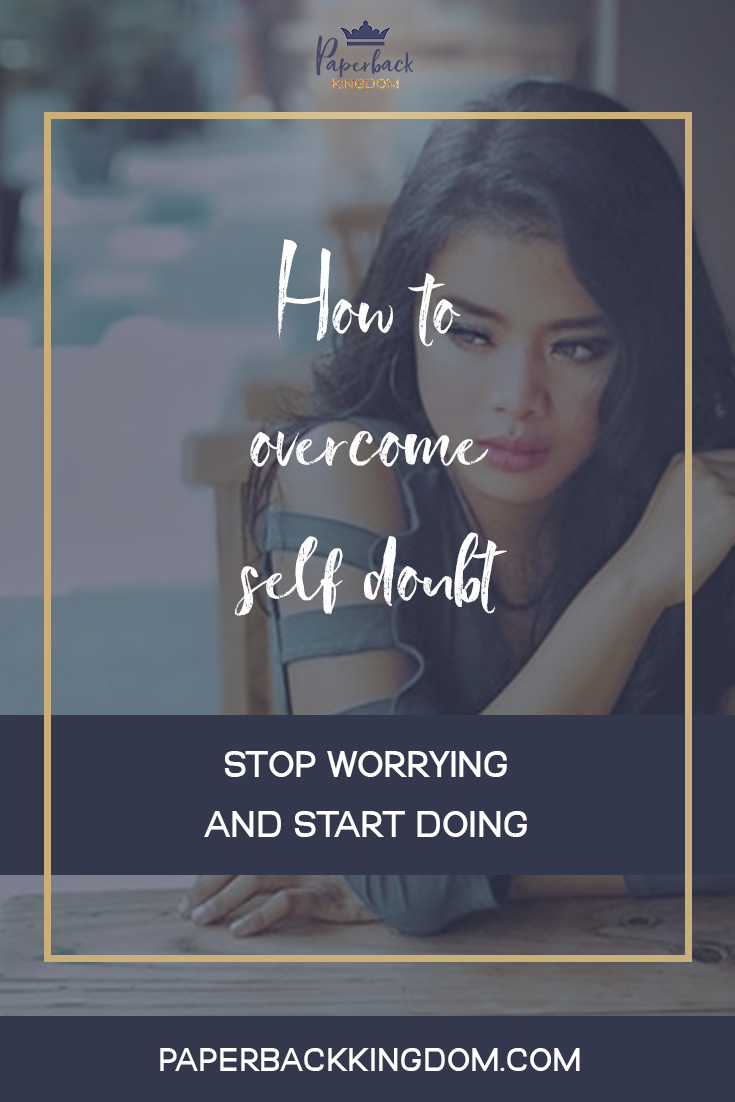Self-doubt is a tricky little fear that gets into your head and stops you from doing all the things that would ultimately create the best version of yourself.
Want to try going to gym? The health benefits would be great but a little voice is telling you that people would judge and laugh and that that matters more than your health.
Want to try travelling the world? The experience and cultural sights would enhance your knowledge but a little voice is telling you it’s too difficult and that matters more than sightseeing.
Want to try writing a book? The success, fun and accomplishment of doing so would be incredible but a little voice is telling you that you’re no good at it and that matters more than trying to improve.
See my point?
Thankfully, you CAN overcome self-doubt with a bit of mindset work to open up those potential benefits and opportunities for your life. Below are three steps to help you get started.
1) Identify The Reason For Doubt
Doubt is built on fact—or at least, what your brain assumes to be fact. Somewhere along the line, you have either convinced yourself or something has happened to make you believe deeply in your own doubts.
So the obvious first step is to find that issue and stamp on it.
Maybe you wore workout wear once and someone laughed because it was out of character for you. Even if they meant no harm by it, you were hurt and your brain built up a defence.
“If I wear workout clothes I will get laughed at.”
Or maybe, you were discussing with your friend how you wanted to go travelling and instead of encouraging you, your friend started pointing out all the dangers to be wary of and paperwork you’d need to do prior. Suddenly, it seemed overwhelming and your brain built up a defence.
“It’s too hard for me to go travelling.”
Or maybe, you’ve always wanted to write a book but you’ve always been told you were not good at writing or English. It suddenly seemed stupid to write a book if it wasn’t something you were naturally good at and so your brain built up a defence.
“I’m not good enough to be a writer.”

2) Find Or Create Proof To Counter This Reason
The next step is to find reason to prove yourself wrong.
Maybe someone has said something or told you something that you choose to believe.
Maybe someone’s reaction or actions influenced how you perceive a past experience.
While this may seem like grounds for proof, take a moment to as yourself these questions:
How many opinions do I have on this issue? Just one (which could be biased) or a variety? Do they agree or are there conflicting thoughts?
While the only opinion on a matter that should matter is yours, gathering more than one opinion from people you trust can help paint a wider and clearer picture of the situation. It depends on the person, but it’s always possible that if someone tells you you’re no good, they could be jealous or scared, or even just have poor taste.
If it makes you feel more confident, you should find some other people who are open to your writing.
Have I done everything I can to improve the situation? (E.g try going to the gym in normal clothes, ask a travel expert for tips to make trips easier, consult a writer for feedback or even lessons.)
If you haven’t taken any steps to improve the situation, you’ll never know for sure what’s truly possible or what the outcome could truly be like. It’s only the assumption you’ve made in your head. So try something new—you might be pleasantly surprised.
Does this matter to me? Am I willing to overcome it, work on it, or improve to make it happen?
If something is important to you, nothing should get in the way of that. Not what people think, your circumstances—nothing. If it makes you happy, you have to try and pursue it because otherwise you’ll spend your life regretting that you didn’t.
Don’t let mindset blocks and doubts prevent you from achieving your goals and dreams.
3) Work On Overcoming Doubt Daily
You could just focus on solving the problem at hand—if you want to write a book, that should be your priority.
But think about it.
Self-doubt is just one of many obstacles that writers come across, a lot of which tie together. Nobody can just ‘get rid’ of doubt and suddenly be able to do everything they couldn’t before.
You can find the cause of your self-doubt and convince yourself otherwise about it, but there will still be a fear and a lack of confidence there preventing you from taking action.
This is why you need to look at building up all of these things over time, and from all angles. If you don’t feel confident in all areas of your life, it can affect your ability to act on any one thing. It creates more room for excuses, and this is what we want to try and overcome. It’s something you’ll need to work on daily until you feel that it has been adequately overcome.
Self-doubt is an aspect of mindset work that I help writers with in my monthly membership, The Authorpreneur Kingdom.
Every month I host 3 x group coaching calls, one of which is a mindset call, where I coach writers through writing blocks, imposter syndrome, self-doubt, rejections and so much more.
The membership is the perfect dose of monthly accountability and support for aspiring and new authors starting out in their journey, and even some of my high level clients still use it because they get so much value out of it.
Interested in learning more? Click here to check it out and join.
You might also enjoy:
Overcoming Fear, Imposter Syndrome and Self-Doubt As An Author

Written by Pagan Malcolm
Pagan is a copywriter and business coach helping writers understand the business side of publishing so that they can become serious authors.
| Facebook Group | Instagram | Podcast | Website | Blog |

